Israel mosque find: Archaeologists unearth 1,200-year-old ruins in desert
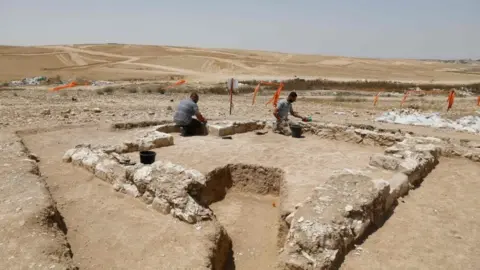 Getty Images
Getty ImagesOne of the world's earliest known mosques, built around 1,200 years ago, has been discovered by archaeologists in Israel's Negev Desert.
The remains, dating from the 7th or 8th century, were found in the Bedouin town of Rahat.
Israel's Antiquities Authority (IAA) says the mosque was unearthed during building work in the area.
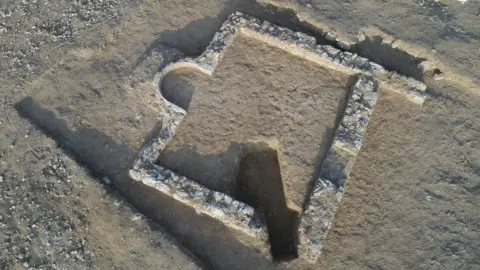 Israel's Antiquities Authority
Israel's Antiquities Authority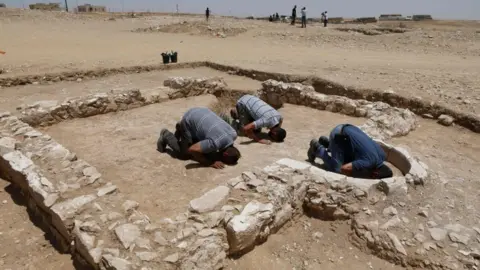 Getty Images
Getty ImagesIt is the first known mosque from this period in the area, rivalling the age of those found in Mecca and Jerusalem, the IAA said.
Excavation directors Jon Seligman and Shahar Zur said the mosque would be "a rare discovery anywhere in the world".
Researchers believe the mosque's congregation were likely to have been local farmers.
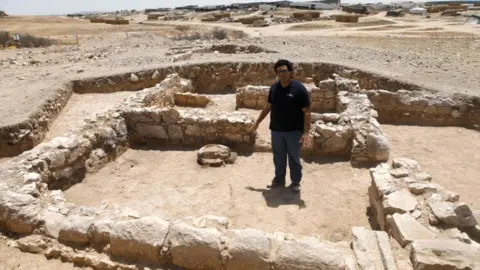 Getty Images
Getty ImagesThe building was open-air, rectangular-shaped and had a "Mihrab" - or a prayer niche - facing south toward Mecca, Islam's holiest city.
"These features are evidence for the purpose for which this building was used, many hundred years ago," said Mr Seligman.
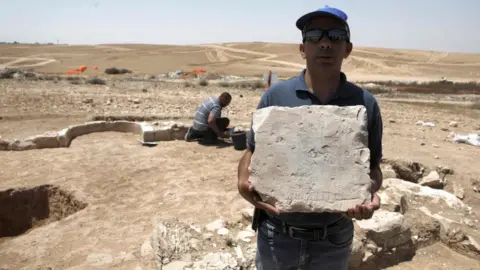 Getty Images
Getty ImagesIt is one of the first mosques constructed after the arrival of Islam in what is present-day Israel, when the Arabs conquered the then-Byzantine province in 636, according to Gideon Avni, an expert on early Islamic history.
"The discovery of the village and the mosque in its vicinity are a significant contribution to the study of the history of the country during this turbulent period," he said.
All pictures copyrighted to Getty and Israel's Antiquities Authority
